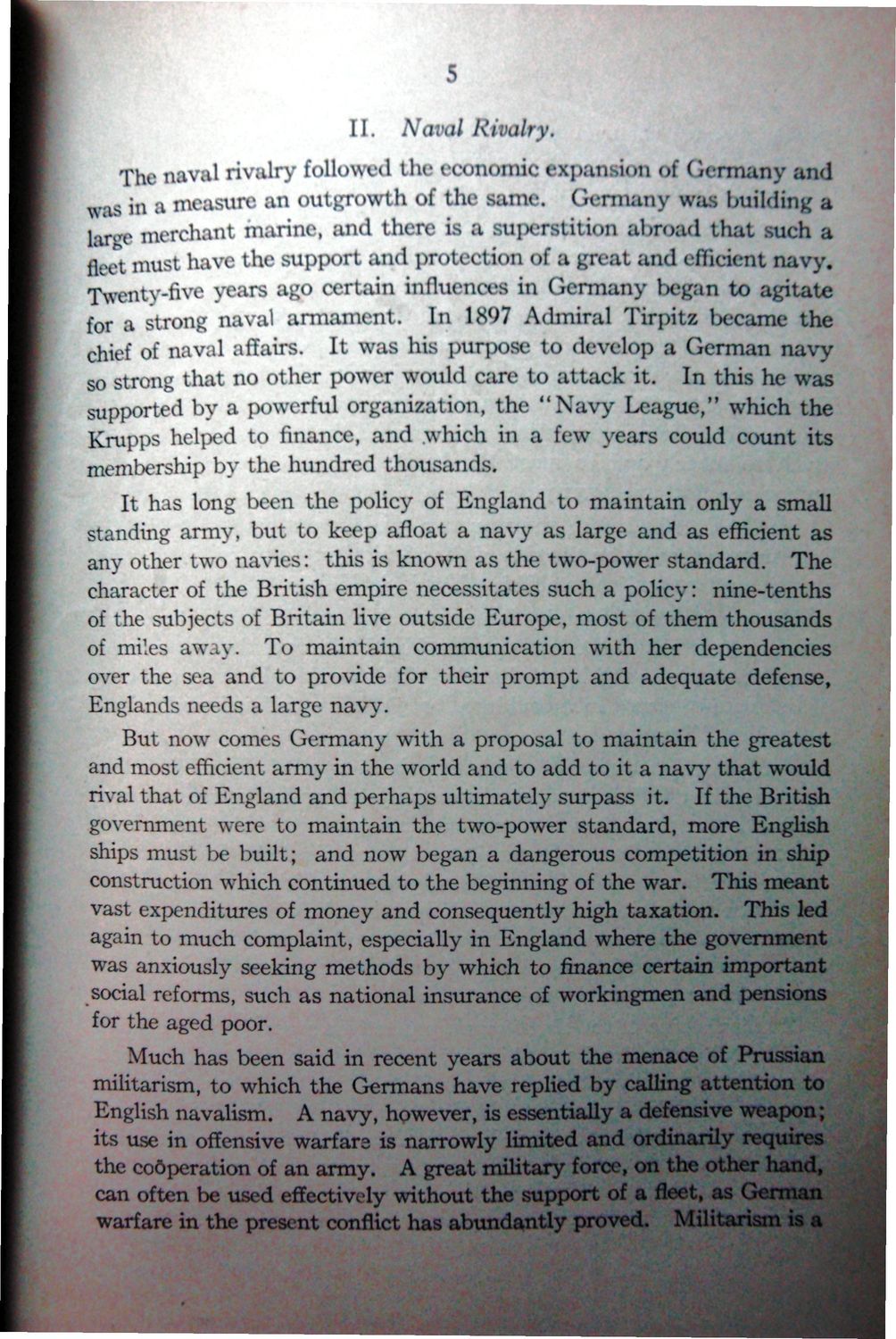| |
| |
Caption: War Publications - WWI Compilation 1923 - Article 15
This is a reduced-resolution page image for fast online browsing.

EXTRACTED TEXT FROM PAGE:
5 II. Naval Rivalry. naval rivalry followed the economic expansion of Germany was in a measure an outgrowth of the same. ( i l T I I I largo merchant marine, and there is a supers fleet must have the support and protection of a great and efficient navy. Twonty-five years ago certain influences in Germany began to agitate { for a strong naval armament. In \S )1 Admiral Tirpitz became the chief of naval affairs. It was his purpose to develop a German navy so strong that no other power would care to i was 1 supported by a powerful organization, the " N a v y League, ' which the Krupps helped to finance, and which in a few years could count its membership by the hundred thousands. • • It has long been the policy of England to maintain only a small standing army, but to keep afloat a navy as large and as efficient as any other two navies: this is known as the two-power standard. The character of the British empire necessitates such a policy: nine-tenths of the subjects of Britain live outside Europe, most of them thousands of miles away. To maintain communication with her dependencies over the sea and to provide for their prompt and adequate defense, Englands needs a large navy. But now comes Germany with a proposal to maintain the greatest and most efficient army in the world and to add to it a navy that would rival that of England and perhaps ultimately surpass it. If the British government were to maintain the two-power standard, more English ships must l>e built; and now began a dangerous competition in ship construction which continued to the beginning of the war. This meant vast expenditures of money and consequently high taxation. This led again to much complaint, especially in England where the government was anxiously seeking methods by which to finance certain important social reforms, such as national insurance of workingmen and pensions for the aged poor. Much has been said in recent years about the menace of Prussian militarism, to which the Germans have replied by calling attention to English navalism. A navy, however, is essentially a defensive weapon; its use in offensive warfare is narrowly limited and ordinarily requires the co&peration of an army. A great military force, on the other hand, can often be used effectively without the support of a fleet, as German warfare in the present conflict has abundantly proved. Militarism is a *
| |